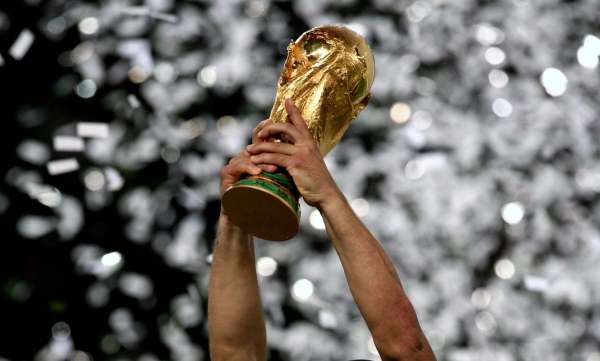
UEFA President Aleksander Ceferin has condemned FIFA’s proposals of expanding the 2030 FIFA World Cup to a 64-team format.
Ceferin labelled the notion of further expanding sport’s most globally watched competition as a “bad idea” and revealed he and UEFA did not know of the proposal until it was lobbied during a FIFA council meeting in March.
FIFA Delegate Ignacio Alonso, President of the Uruguayan Football Association, first proposed the 64-team format as a ‘one-off’ in celebration of the 100th anniversary of the World Cup.
The 2030 World Cup is set to be a multinational-held tournament, with group stage fixtures for Uruguay, Argentina and Paraguay to be held in their respective nations as ‘centenary celebration matches’ to commemorate the 100th anniversary.
Besides these celebration matches, the rest of the fixtures, from the group stages up until the World Cup Final, will be held across Spain, Portugal and Morocco.
But the latest idea to celebrate the 2030 World Cup involves adding more teams to compete. FIFA has already received criticism for expanding the competition from 32 to 48 teams for the upcoming 2026 World Cup next year, and Ceferin has made it clear he strongly opposes any further expansions.
He spoke at a recent UEFA annual congress held in Belgrade, stating: “This proposal that was made was even more surprising than it was for you. I think it’s not a good idea for the World Cup itself, and it’s not a good idea for our qualifiers as well.
“So I’m not supporting that idea. I don’t know where it came from, but it’s strange that we didn’t know anything before this proposal at the FIFA council.”
FIFA President Gianni Infantino stated that he would “explore” the 64-team format idea and that the world football governing body had a “duty to analyse” the proposal.
The expansion of more teams competing in international and club competitions has increased over the past several years.
UEFA remodelled the Champions League this season in its new league format, axing the traditional four-team group stage. This decision meant that Champions League qualified teams would compete in two more group stage fixtures than the six previously, as well as two more play-off matches if they fell into the play-off bracket.
FIFA is also set to introduce a new format this summer to its Club World Cup competition. The new 32-team knockout format to be held this June, will see up to 12 teams from Europe, such as Real Madrid, Manchester City and Chelsea, compete during a time typically reserved for preseason rest for players.
Despite FIFA recently announcing a total of up to $1bn to be awarded to the winners of the Club World Cup, football players, coaches and media members alike have criticised the new format, deeming it unnecessary, a perceived ploy for monetary gain and increasing the workload on players’ health.
Ceferin also highlighted the impact the increased schedule is and will have on players’ bodies, which he alluded to at the UEFA congress.
“The Club World Cup is happening, and that’s it,” he said. “The clubs from Europe wanted it and I don’t see this as competition to our competition.
“It will be more matches for some of the players, but maybe that’s more of a question for my dear colleague Gianni Infantino.”